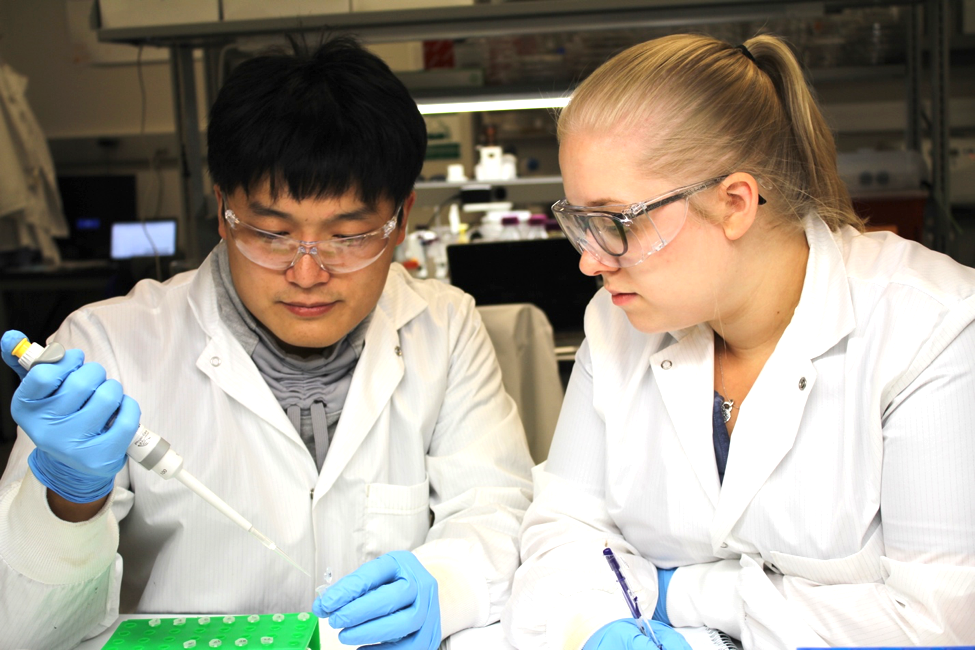
Graduate students Wenlong Zhang and Mackenzie Maurer working on the EID project.
Fighting new disease outbreaks before they can spread
September 27, 2018
UNIVERSITY PARK, Pa. — Effective proactive virus discovery to help prevent future catastrophic disease outbreaks is the focus of a four year, $2 million grant from the National Institutes of Health. Receiving the grant is Siyang Zheng, associate professor of biomedical engineering and electrical engineering.
Infectious diseases account for one quarter of global deaths and massive economic loss. Individual outbreaks can be devastating, such as the estimated 20 to 50 million lives lost during the 1918 flu pandemic. They can also cause traumatic economic loss. For example, there were losses of $40 billion in the first six months of the SARS outbreak during 2002 and 2003.
Pathogen discovery is critical for fighting these emerging infectious diseases (EID) outbreaks, but causative agents often remain unidentified. These EID outbreaks often begin in resource-limited areas. Also, since they are new diseases, the risk of a catastrophic impact is higher because of the low levels of standing immunity in the human population.
To combat this, Zheng and his team are developing a nanomaterial-integrated microdevice to be used as a portable platform for viral discovery. The device can rapidly enrich virus with high efficiency, then purify and amplify virus genome inside the device. Coupled with a portable high throughput sequencer, the technology can advance virus discovery from environmental and clinical samples.
Working with his co-investigators, Zheng will conduct multiple pilot studies that use the developed technology for virus discovery from the clinical and environmental samples. The ultimate goal is to develop the entire high-performance portable platform to advance virus discovery for the battle with viral infectious diseases.
Zheng serves as the primary investigator for the grant. His co-investigators include Wallace Greene, associate professor, pathology, Penn State College of Medicine; Kurt J. Vandegrift, research assistant professor, department of biology, Penn State; Richard J. Webby, member, division of virology, department of infectious diseases, St. Jude Children’s Research Hospital and director, World Health Organization Collaborating Center for Studies on the Ecology of Influenza in Animals and Birds; and Amit Kapoor, associate professor, department of pediatrics, Ohio State, and principal investigator, vaccines and immunity, The Research Institute at Nationwide Children's Hospital.



